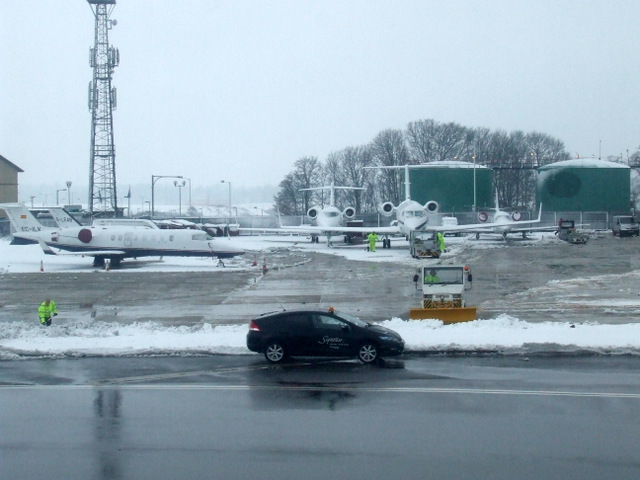
Heavy snowfall overnight forced several UK airports, including Manchester, Liverpool, and Birmingham, to close their runways, leading to widespread delays, cancellations, and flight diversions.
Airport closures and reopenings
Manchester Airport reopened its runways at around 09:45 GMT on Sunday after hours of closure. During this time, no flights could land, and all incoming planes were diverted. Tracking website Flightradar24 reported that at least 12 flights bound for Manchester landed at other airports, including London Heathrow, Birmingham, Dublin, Glasgow, and Paris.
Similarly, Liverpool John Lennon Airport has reopened, but Leeds Bradford Airport remains closed. Both Bristol and Birmingham airports temporarily shut their runways due to the snow, but they have since resumed operations.
Manchester Airport warned passengers of potential delays as teams worked to de-ice planes and clear pathways. Travelers were advised to check with their airlines for updated flight information.
Weather warnings and impact
Snow and freezing rain have swept across the UK, with the Met Office issuing amber and yellow weather warnings. Amber warnings, which indicate a risk to life and severe travel disruption, are in place for Wales and areas stretching from the Midlands to Manchester. Less severe yellow warnings affect parts of Scotland, Northern Ireland, and other areas of England.
The Met Office has cautioned that rural communities could face isolation, with up to 40cm (15.7in) of snow expected on high ground. As of 09:00 GMT, Bingley, West Yorkshire, had recorded 16cm (6.3in) of snow, while the lowest overnight temperature was -9.3°C (15.26°F) at Fyvie Castle in Aberdeenshire.
Ice poses an additional hazard, especially in Wales and central England, as rain freezes on sub-zero surfaces. Police in Wiltshire and Somerset reported "chaotic" conditions and urged residents to travel only if essential.
National preparedness and forecast
National Highways deployed 500 gritting lorries and stockpiled over 240,000 tonnes of salt to combat the freezing conditions. Stuart Irons from National Highways noted that snow is heaviest in the north, while conditions in the Midlands are beginning to ease. However, thawing snow could increase the risk of flooding in some areas.
The National Grid reported power outages in Birmingham, Bristol, and Cardiff, with restoration efforts underway.
Forecasts indicate that heavy snowfall will continue to affect England and northern Wales, particularly over the Pennines and the Cumbrian Fells, where up to 40cm of snow is expected. Lower areas could see disruptive snow mixed with rain, creating icy conditions.
Temperatures are expected to drop again on Monday, with the UK Health Security Agency's amber cold weather health alerts remaining in effect for all of England.
Travel safety and tips
Authorities have reminded the public to take precautions during the cold weather. National Highways has dispatched gritters across the UK, and motorists are urged to drive carefully on icy roads.
Residents in affected areas are advised to monitor weather updates and prepare for possible disruptions in travel and power supply. Photo by Snow at Luton Airport by Thomas Nugent, Wikimedia commons.


































